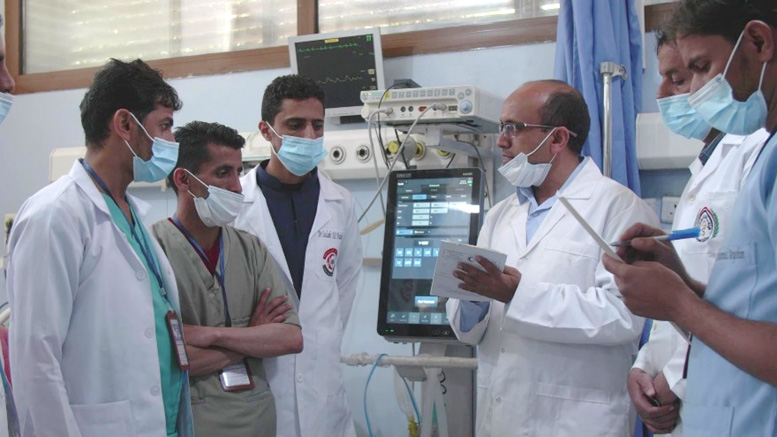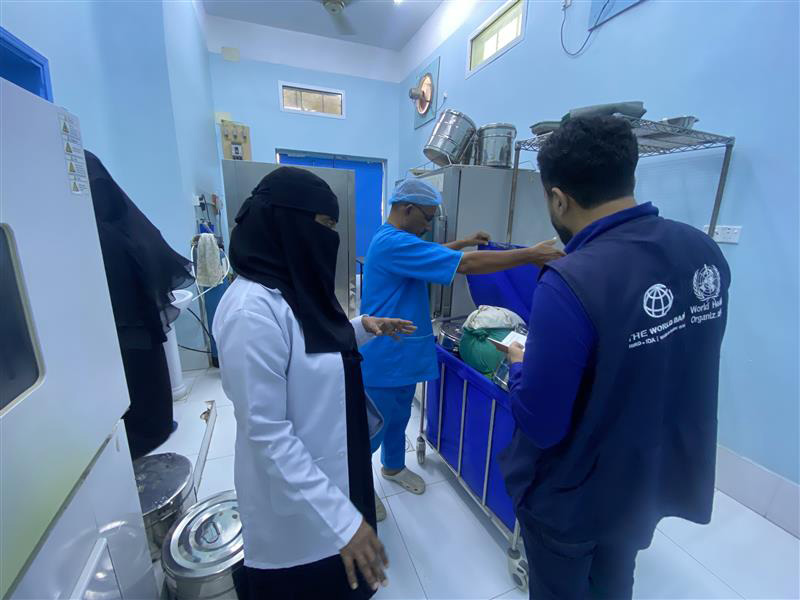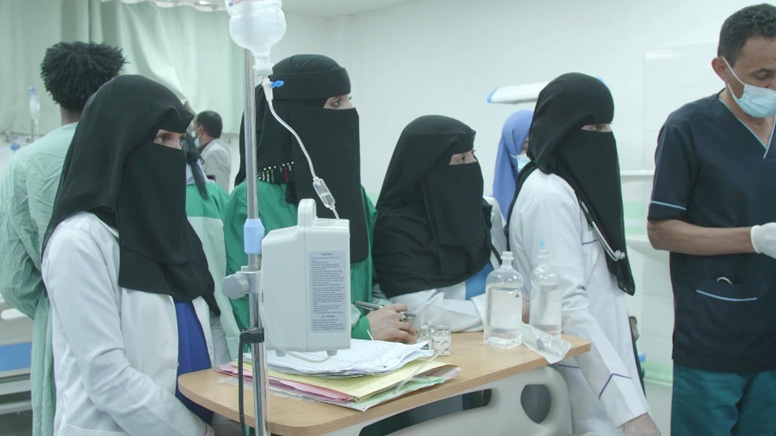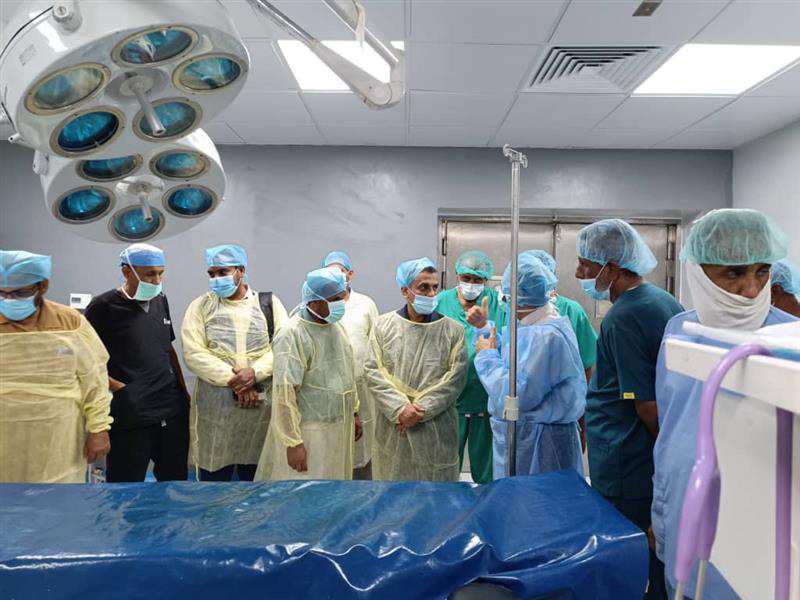 1 December 2024, Aden and Sana’a, Yemen – 28 November 2024, Aden and Sana’a, Yemen – Hospitals provide lifesaving medical care to people suffering from severe illness, injuries, complications from chronic diseases and other critical medical conditions. In Yemen, when people need health care, they often turn first to the nearest hospital.
1 December 2024, Aden and Sana’a, Yemen – 28 November 2024, Aden and Sana’a, Yemen – Hospitals provide lifesaving medical care to people suffering from severe illness, injuries, complications from chronic diseases and other critical medical conditions. In Yemen, when people need health care, they often turn first to the nearest hospital.
Since the start of Yemen’s protracted crisis, WHO and the country’s health authorities, in partnership with the World Bank, have helped prevent the collapse of more than 100 hospitals.
WHO support provides essential resources like medicines and equipment, and fuel to mitigate frequent power cuts, benefiting millions of Yemenis. Between November 2023 and June 2024, over 3.9 million people received health care at supported hospitals: 1.1 million people were treated in emergency rooms, 324 000 received inpatient care and 206 000 surgeries, 93 000 deliveries and 38 000 caesarean sections were performed.

WHO support in 2024 has included the procurement of US$ 7 million of essential commodities, including insulin and other diabetic and cardiovascular medicines, intravenous fluids to treat infections, including cholera, and diagnostic laboratory kits. WHO also distributed 66 374 cylinders of oxygen to 37 facilities and 3.7 million litres of fuel to 143 facilities. Supplies are distributed on a needs basis, determined in collaboration with health authorities and facilities.
WHO Representative to Yemen Dr Arturo Pesigan explained the impact of WHO’s partnership with the World Bank: “These essential investments not only save lives but stabilize Yemen’s entire health infrastructure amidst the prolonged crisis, ensuring essential services reach those in need. Without these resources, the system would be at risk of collapse.”
In recent years, in accordance with the humanitarian-peace-development nexus approach, WHO has complemented its provision of lifesaving support with efforts to improve the quality of care in supported facilities and strategic action to guide future investments.
In collaboration with WHO and the Ministry of Public Health and Population, 7 hospitals are engaged in an initiative to strengthen their resilience to climate change. The initiative focuses on developing hospitals that are safer, greener and more capable of responding to emergencies. WHO plans to expand the pilot initiative to more hospitals, improving emergency preparedness, operational efficiency and health system resilience.

In 2022, WHO worked with the Ministry of Public Health and Population to endorse a national quality indicator tool. Collaboration was subsequently ramped-up to establish quality committees in hospitals to assess facility adherence to standards and develop and implement improvement plans. These efforts led to the endorsement of a national quality of care strategy on 22 September 2024.
WHO has played a crucial role in strengthening the skills of health workers through targeted capacity-building initiatives. In addition to clinical and technical training, WHO has focused on often overlooked areas, including human resources, finance and hospital management, to ensure that facilities are equipped to effectively manage everyday health services and respond to emergencies.
WHO guided the development of Yemen’s first-ever hospital sector profile, and in 2024 initiated work on the country’s first hospital sector strategy with the goal of improving planning and implementation of people-centred hospitals, strengthening preparedness and emergency response and supporting the monitoring and evaluation of hospital sector performance.

To improve the management of medical equipment provided to supported facilities, WHO is working with the Ministry of Public Health and Population to pilot an inventory management system. Already operating in 5 hospitals, the system records details such as the quantity, condition, location and maintenance status of each medical device in the facility. The project will contribute to optimizing the procurement, use and maintenance of medical equipment, improve operational efficiency and enhance patient safety.
Looking ahead, WHO support to hospitals is expected to continue with World Bank funding. Efforts are also underway to mobilize additional domestic and international resources. These investments are crucial to provide services, save lives and improve the well-being of millions of vulnerable Yemenis.
Note:
WHO and the World Bank have partnered on 4 life-saving projects in Yemen since 2017: the Emergency Health and Nutrition Project 2017–2022; the Yemen COVID-19 Response Project 2020–2022; the Emergency Human Capital Project 2021–2025 and the Pandemic Preparedness and Response Project 2023–2026 (funded by the Pandemic Fund).




